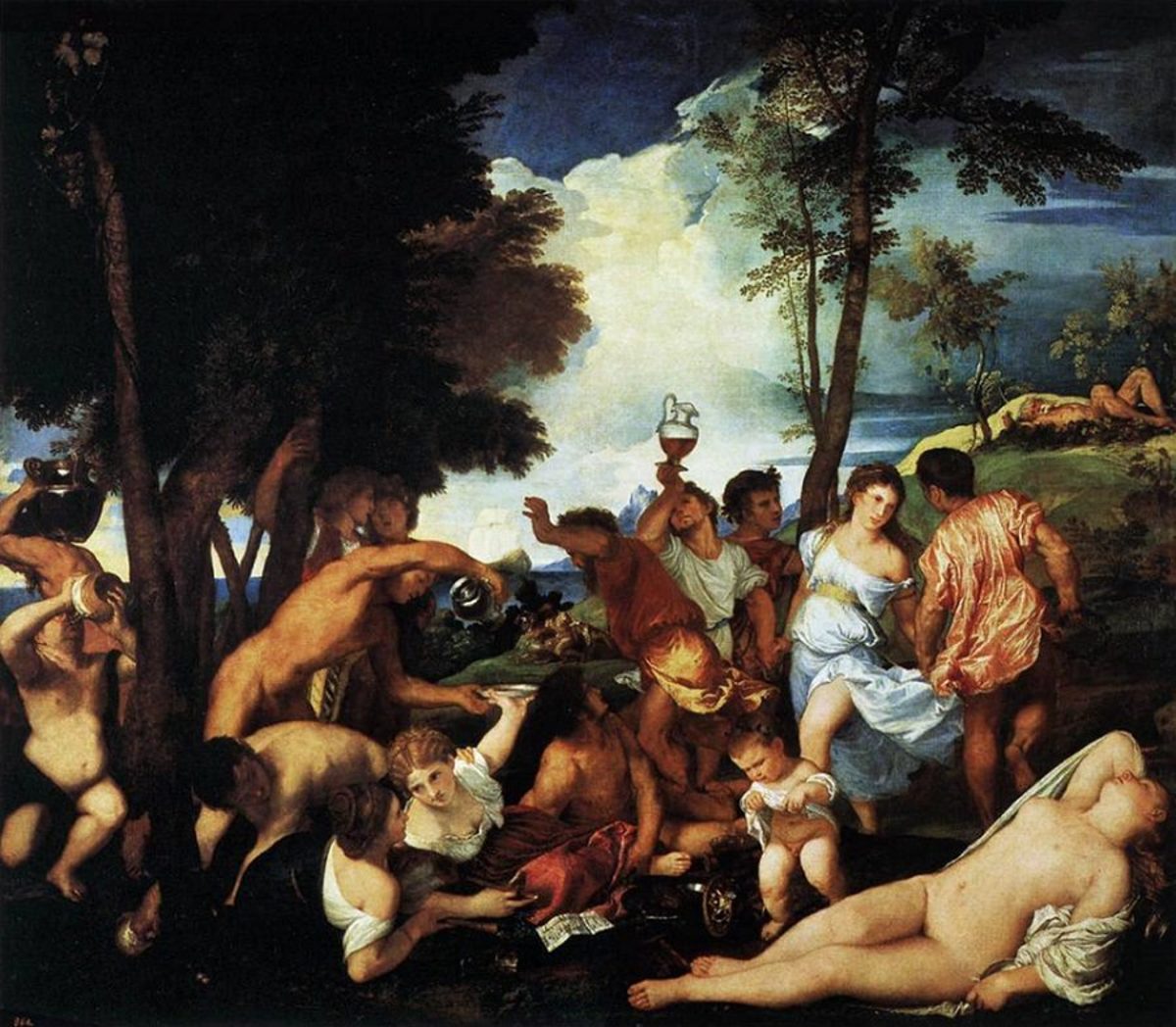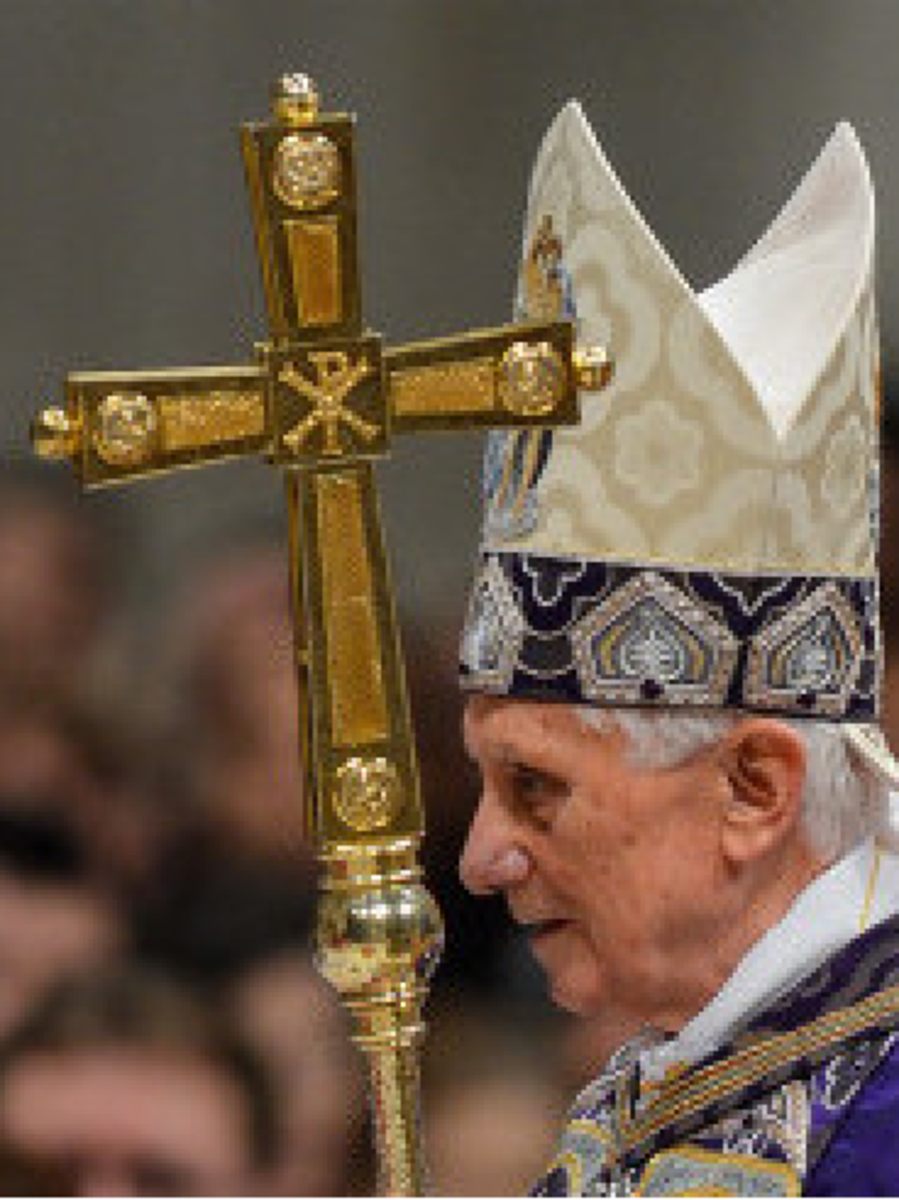Biblical Questions Answered, Trinity etc.
Woe to those who make right wrong and wrong right.
EXPLAIN... HOW
>
>
> Jesus Sinless : Heb 4:15
Response
Jesus [means Jehovah is salvation] existed as only- begotten by God
[only creature created ONLY by God himself, all other creation was
done through Jesus [as a spirit Being] by God. So, then, the lifeforce
of Jesus was transferred from heaven to the womb of a Jewish virgin,
the Creator ensuring that the conception would be perfect and the
offspring being born perfect without the effects from Adam.
Also, he was completely righteous remaining faultless and faithful
to his God and Father Jehovah even to death.Philippians 2:5- 11,
Romans 5:12, 1 Corinthians 15:45, Hebrews 1:1, 2, 3, 4; 4:15.
At Luke 1:31-33 we read: and, look! you will conceive in your womb and give birth to a son,
and you are to call his name Jesus. This one WILL be great and WILL be called Son of
the Most High; and JEHOVAH God WILL GIVE him the throne of David his father, and
he WILL RULE as king OVER THE HOUSE OF Jacob, FOREVER, and there WILL be
no end of his kingdom." Compare with Daniel 7:13,14; 2:44; Isaiah 11: 1-9; Psalm 2:7,8.
NOT CO-EQUAL TO GOD
Response
Read please.
John 14: 28; 1 Corinthians 15: 28, Matthew 24: 36, 1 Corinthians 11:3.
John 14:28 reads: You heard that I said to you, I am going away and I am coming back to you. If you loved me, you would rejoice that I am going my way to the Father, because the Father is greater than I am.
1 Corinthians 11:3 says: But I want you to know that the head of every man is the Christ; in turn the head of a woman is the man; in turn the head of the Christ is God.
1 Corinthians 15:28 reads: But when all things will have been subjected to him,
then the Son himself will also subject himself to the One who subjected all things
to him, that God may be all things to everyone.
John 5:19 reads: Therefore, in answer, Jesus went on to say to them: “Most truly
I say to you, the Son cannot do a single thing of his own initiative, but only
what he beholds the Father doing.”
John 5:30 reads: I cannot do a single thing of my own initiative; just as I hear, I judge; and the judgment that I render, is righteous, because I seek, not my own
will, but the will of him that sent me.
Verse 36 of John 5 reads: But I have the witness greater than that of John, for the very works that
my Father assigned me to accomplish, the works themselves that I am doing, bear witness
about me that the Father dispatched me.
Verse 46 of John 5 reads: In fact, if you believed Moses you would believe me, for
that one wrote about me. [Deuteronomy 18:18, Acts 3:22].
1. Psalm 110:1 and 4 compared with Hebrews 6:20, 8:1, 2, 4:15, Matthew 22:41- 46.
These Scriptures show that Jesus Christ is High Priest to God. WHO is greater,
God, or the ONE who acts as High Priest?
2. Deuteronomy 18:18, 19 compared with John 1:19-21, 25-27; 6:14; 7:40; Acts 3:19-26
Jehovah God mentioned a Prophet that was to come similar to Moses [would liberate the people from any entanglement so they can pursue true worship of God]. This Prophet was to SPEAK only TRUTH from God himself. John 12:49, John 8:42; John 18:37, Matthew 21:9 - 11.
3. When Jesus Christ was tempted by the Devil [slanderer] to do an act of worship to him, Satan [resister], Jesus directed Satan to God's Word [Bible] saying this privilege was
God's ONLY.
Matthew 4:10, compare with Deuteronomy 6:13.
4. At Matthew 27: 46 we read: And about the ninth hour, Jesus cried out with a loud voice,
saying,
"Eli Eli, lama sabachthani?" that is, "My God, My God, why have you forsaken me?" NKJV.
Who was this God? Yes, my friends, Jesus was speaking to Almighty God, Jehovah.
Compare Psalm 22:1.
5. There are various references of the God and Father of Jesus Christ. Please read; 1 Peter 1:3, Romans 15:6, 2 Corinthians 1:3, Ephesians 1:3, John 20:17, Revelation 3:12,
2 Corinthians 11:31.
NOTE PLEASE that EVEN when Jesus is glorified and in heaven he refers to his God [Re 3:12].
6. Jesus is identified as taking the scroll from the hand of the One seated on the throne in
the heavens [that is from God's hand]. Revelation 5: 7.
7. Jesus is compared to an angel of God, at Galatians 4:14. This is supported by Proverbs 8:22-31, Hebrews 1: 5; Hebrews 8: 1, 2; Phillipians 2: 5- 11; Revelation 3:14; 1 Thess. 4: 16. Col. 1:15, John 3:13, Daniel 7: 13, 14, Micah 5: 2.
Ray wrote:
> Where is he seated right now?o you know? hint at His [God
> the Father's right hand] EXAULTED by Him [God] so if He
> does why don't you?
Response
1 Peter 3: 18 says: Why, even Christ died once for ALL TIME concerning sins, a righteous
[person] for unrighteous ones, that he might LEAD YOU to God, he being put to DEATH
in the FLESH, but being made ALIVE in the SPIRIT.
1 Peter 3: 22 says: He is at God's right hand, for he went his way to heaven; and angels and
authorities and powers were MADE subject to him.
Please READ Acts 3: 12 - 26 ; Acts 7: 51 - 56; Acts 17: 11, 24 - 31; John 17: 3.
John 5: 22-24 read: For the Father judges no one at all, but he has committed all the
judging to the Son, in order that all may honor the Son just as they honor the Father.
He that does not honor the Son DOES NOT honor the Father WHO SENT him.
MOST TRULY I say to you, he that HEARS MY WORD and BELIEVES him that
SENT me has EVERLASTING LIFE, and he DOES NOT come into JUDGMENT
but has PASSED OVER FROM DEATH TO LIFE."
Philippians 2:5- 11 say: Keep this mental attitude in you that was also in Christ Jesus,
who, although he was EXISTING in God's form, gave NO CONSIDERATION to a
SEIZURE, namely, that he should be EQUAL TO God. No, but he EMPTIED himself
and took a slave's form and came to be in the LIKENESS of men. More than that, when
he FOUND himself in fashion as a man, he HUMBLED himself and became obedient
AS FAR AS death, yes, death on a torture stake.
For this VERY REASON also God EXALTED him to a SUPERIOR POSITION and
kindly GAVE him the name that is above every [other] name, so that in the name of
Jesus EVERY knee should bend of those in heaven and those on earth and those under
the ground, and every tongue should openly acknowledge that Jesus Christ is Lord to
the glory of God the Father.
Ray wrote:
.. hmm anyway... check this..
> Jesus FORGIVES SINS : Lk 5:20 -24 and Lk 7 :47 -48
> Matth 9:2 and vs 6
Response
Let us read John 20: 21-23: Jesus, therefore, said to them again: "May you have peace.
Just as the Father has sent me forth, I also am sending you." And after he said this he
blew upon them and said to them: "Receive holy spirit. If you forgive the sins of any
persons, they stand forgiven to them; if you retain those of any persons, they stand
retained."
The Bible records the requirements for FORGIVENESS of sins by God.
Under direction of holy spirit, the apostles could discern whether individuals were MEETING
SUCH REQUIREMENTS and could declare on THIS BASIS that God had either
forgiven or not forgiven SUCH ONES. EXAMPLE the account of Ananias and his wife Sapphira
at Acts 5: 1-11. In this instance Ananias and Sapphira were intent on working deception, being
hypocritical in their declaration of proceeds to a property they owned. They were individually
accused of putting God's spirit to the test, subsequently losing God's favor and their lives.
John 3:33- 36
He that has accepted his witness has put his seal to it that God is
true. For the one whom God SENT FORTH SPEAKS THE SAYINGS of God, for he
does not give the spirit by measure. The Father loves the Son and has given all things
into his hand. He that EXERCISES FAITH IN THE Son has everlasting life, he that
disobeys the Son, WILL NOT SEE LIFE, BUT THE WRATH OF God remains
upon him.
If you ask anything in my name, I will do it, "If you love me, you will observe my commandments;
and I will request the Father and he will give you another helper to be with you forever, the spirit
of the TRUTH, which the world cannot receive, because it neither beholds it nor knows it..... John 14:14-17.
He that has my commandments and observes them, that one is he who loves me. In turn he that loves me will be loved by my Father, and I will love him and plainly show myself
to him." John 14: 21.
You Submitted:
1. Does the NWT omit a word at John 14:14, which distorts its meaning?
Answer
14 If YOU ask anything in my name, I will do it. [NWT]
John 14:14 (King James Version)
14If ye shall ask any thing in my name, I will do it.
2. Did the early Christians pray to Jesus (Acts 7:59,60)?
Answer
PRAYERS DIRECTED ONLY TO God Almighty, THROUGH, Jesus Christ.
Jesus the Messiah, has set the pattern of how we should pray.
John 14: 6 says: Jesus said to him: "I am the way and the truth and the life. No one comes to the
Father except through me...."
In verse 14 of the same chapter Jesus here says: If you ask anything in my name, I will do it.
John 16: 23- 24 read: And in that day you will ask me no question at all. Most
truly I say to you, if you ask the Father for anything he will give it to you
in my name. Until this present time you have not asked a single thing in my
name. Ask and you will receive, that your joy may be made full.
ACTS 7
Acts 7:30 (King James Version)
30And when forty years were expired, there appeared to him in the wilderness of mount Sina an angel of the Lord in a flame of fire in a bush.
In the above verse, an angel of the Lord; who is this Lord? Clearly Stephen meant an angel of JEHOVAH/ Yahweh.
Exodus 3:2 (Young's Literal Translation)
2and there appeareth unto him a messenger of Jehovah in a flame of fire, out of the midst of the bush, and he seeth, and lo, the bush is burning with fire, and the bush is not consumed.
Thus the NWT CORRECTLY RENDERS Acts 7:60 as JEHOVAH being the One that Stephen prays to.
NWT Acts 7:59 to 60.
59 And they went on casting stones at Stephen as he made appeal and said: “Lord Jesus, receive my spirit.” 60 Then, bending his knees, he cried out with a strong voice: “Jehovah, do not charge this sin against them.” And after saying this he fell asleep [in death].
What about Acts 7:59?
Well, Stephen was fully aware, that his resurrection was through Jesus Christ as shown at John 5:24 to 30.
John 5:24 (King James Version)
24Verily, verily, I say unto you, He that heareth my word, and believeth on him that sent me, hath everlasting life, and shall not come into condemnation; but is passed from death unto life.
25Verily, verily, I say unto you, The hour is coming, and now is, when the dead shall hear the voice of the Son of God: and they that hear shall live.
26For as the Father hath life in himself; so hath he given to the Son to have life in himself;
27And hath given him authority to execute judgment also, because he is the Son of man.
28Marvel not at this: for the hour is coming, in the which all that are in the graves shall hear his voice,
29And shall come forth; they that have done good, unto the resurrection of life; and they that have done evil, unto the resurrection of damnation.
30I can of mine own self do nothing: as I hear, I judge: and my judgment is just; because I seek not mine own will, but the will of the Father which hath sent me.
You Sent:
. Who has the name above every name (Phil. 2:9)?
Philippians 2:9 (King James Version)
9Wherefore God also hath highly exalted him, and given him a name which is above every name:
Answer
It is simply alarming to me why there is a controversy with the above scripture.
Please note that JEHOVAH/ Yahweh is the Most High [Psalm 83:18], and cannot be exalted any higher since He already is the HIGHEST. In fact Jehovah/ Yahweh is the One DOING the exalting. The Scripture at
1 Corinthians 15:28 should help us to better understand.
1 Corinthians 15:28 (King James Version)
28And when all things shall be subdued unto him, then shall the Son also himself be subject unto him that put all things under him, that God may be all in all.
You Sent:
6. Does the NWT render the Greek word translated worship when used for Jesus as obeisance, but worship at other times?
Answer:
WORSHIP
In many cases where worship was recorded, obeisance, was intended.
Compare please these Bible texts.
Matthew 14:33; Revelation 3:9
Matthew 14:33 (Young's Literal Translation)
33and those in the boat having come, did bow to him, saying, `Truly -- God's Son art thou.'
Revelation 3:9 (Young's Literal Translation)
9lo, I make of the synagogue of the Adversary those saying themselves to be Jews, and are not, but do lie; lo, I will make them that they may come and bow before thy feet, and may know that I loved thee.
Candor
It is quite evident by those of us who honestly study its contents that the
Bible [in the original tongues] was written with a great deal of candor. So
events and comments were recorded as they occurred. In the event that a comment was made by someone, however erroneous, it was recorded just as it occurred. Therefore the Jews sought to kill Jesus because [in their minds] He made himself equal to God by saying He is the Son of God.
CAREFUL SEARCH
It is in our best interest then in order to obtain truth, to CONSIDER EVERYTHING PERTAINING TO A PARTICULAR ISSUE.
Why do some get sidetracked on a particular Bible passage, when there are so many others where the TRUE MEANING IS CLEAR AND WITHOUT ANY DISPUTES AS REGARDS THE CORRECTNESS OF RENDERINGS?
You Submitted:
7. Is the NWT a literal translation at John 8:58?
Answer:
John 8:58 (King James Version)
58Jesus said unto them, Verily, verily, I say unto you, Before Abraham was, I am.
John 8:58 (Worldwide English (New Testament))
58Jesus answered, `I tell you the truth. I already was before Abraham was born.'
John 8:58 (The Message)
58"Believe me," said Jesus, "I am who I am long before Abraham was anything."
58 Jesus said to them: “Most truly I say to YOU, Before Abraham came into existence, I have been.” [NWT].
Ardent Bible readers will know that the rendering of this Bible passage is merely stating that Christ existed, before Abraham even existed. Refer to Micah 5:2 etc.
You Submitted:
10. Is Jesus the God, according to the Greek?
Answer:
Sadly, much of the confusion regarding the true identity of the Messiah
arouse during the time of the pagan emperor Constantine’s attempt to harmonize the church. A careful research of history will show that Constantine’s efforts led first to the declaration of the Son and the Father being of the “same essence”.
It was precisely this and other concepts foreign to the primitive Christians, which has influenced many of the individuals who subsequently rendered the Greek and Syriac texts into Latin, English and other tongues.
Comparisons
A careful comparison of various translations may alarm some, but the very
Scriptures themselves, predicted that many false teachings would appear.
In the attempt of some to support ideas that were clearly NOT SUPPORTED by Scriptures some SERIOUS errors have entered in some translations.
So then 1 John 5:7 has an addition [Comma Johanneum] which is indisputably fallacious.
Revelation 1:11 has an addition which entitles such individual[s] to the plagues recorded in that Book.
1 Timothy 3:16 has inserted God, where Christ was intended.








